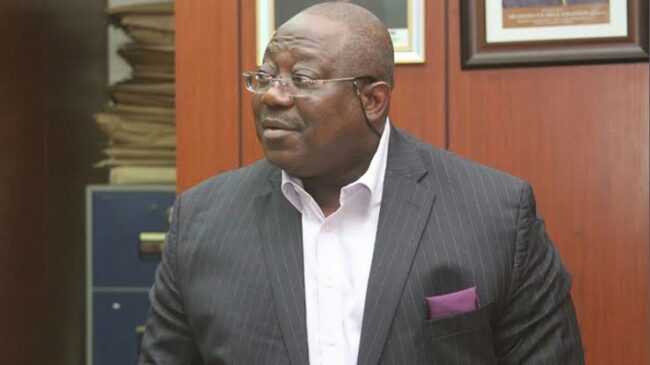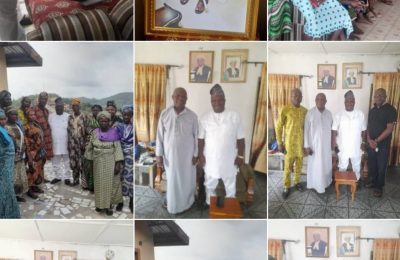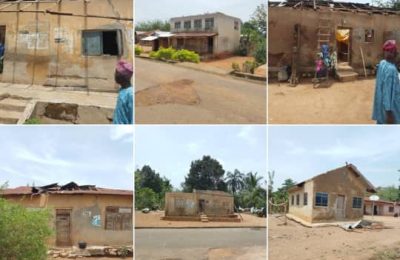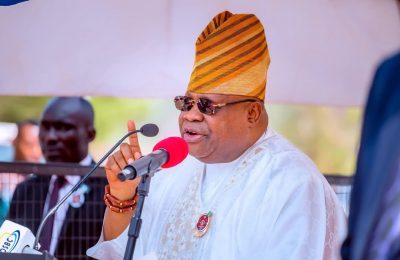
THE Chairman of the Federal Civil Service Commission (FCSC), Professor Tunji Olaopa, has described the situation in the sector as a deep crisis that requires policy innovation and creativity to overcome.

Olaopa particularly bemoaned the state of teaching profession which he observe has now become all comer affairs, saying this was not good for the development of the profession.
He spoke when he received the National Executive of College of Education Academic Staff Union (COEASU) led by its president, Dr Smart Olugbeko, on courtesy in his office, in Abuja.
He noted that as a teacher himself, he was very familiar with the education sector and its challenges, adding that the terrain is not new to him.
Head of Press and Public Relations, FCSC Taiwo Hassan, confirmed that Olaopa had the best career when he was a deputy director, Head of Policy Division, Federal Ministry of Education which made him to be very familiar with local and global conversation on education.
According to the FCSC chairman, the union is a critical stakeholder in the development of education in the country, and that no nation could develop without a sound education that takes the capacity development of its teachers very seriously.
He asserted that Colleges of Education produce more practically-oriented teachers than graduates of the Faculty of Education at the universities that are more theoretically inclined.
Olaopa lamented the issue of institutionalised indiscipline in the educational sector describing it as worrisome and manifest in different ways, pointing out that once teaching and manner of delivery are weak it would equally have effect on the quality of the civil servant and civil service.
He said part of the challenges currently bedevilling the education sector is the skill-set of the teachers that are not well trained in the art and science of teaching.
He added that the setting up of private schools are profit-driven rather than passion for the sector as well as the cancellation of Teacher Training Colleges (TTC) that used to be the production and recruiting ground for teachers many years back has had a negative effect on the quality of schools and teachers being produced.
While calling for the revisit of TTC, he assured the COEASU leadership of his support in their quest to improve the fortune of education in Nigeria including working for the success of the dual mandates given to Colleges of Education as Nigeria Certificate in Education (NCE) and B.Ed certificate awarding institutions.
The FCSC chairman recalled that he was brought up to speed on some of the contending issues in Nigeria when he chaired Technical Working Group of Federal Ministry of Finance, Budget and Planning on education and human capital development where a succession plan was to be developed for economic growth and recovery plan during former Muhammadu Buhari’s administration.
He noted that there were many initiatives to professionalise teaching, saying that he was privy to the Teachers Registration Council of Nigeria’s efforts in identifying who a teacher is; and this is still not fully answered in the face of current realities where teaching profession is still largely an all comer affairs, particularly in private schools.
He pointed out that there is a global benchmark regarding the modelling of tertiary education into three concurrent significances that cater for different aspects of national development.
According to him, this modelling was established such that universities, colleges of education and other mono-technics and polytechnics would function within a framework of complimentary, in a way that will compel the three to cater for human capital requirement of the country.
He said this complementary role was an ideal flexible relationship in other climes, saying unfortunately this has structurally and historically altered in favour of one which is the University in Nigeria.
He added this has become crippling for national skills equilibrium to the detriment of national development.
Olaopa said it was unfortunate that the reigning theory today in Nigeria is that university alone can produce the entire manpower that Nigeria requires. He disputed the claims, saying what universities are producing are white collar jobbers who really lack the core skills to function beyond the theoretic.
He added that the nation suffers at the levels of vocational and technical skills where Nigeria depends on Togo and Benin republic to supply artisans to the country; which leads to irresolvable structural unemployment that is making a mess of one of the biggest asset Nigeria has which is the youth population as compared to other Organisation for Economic Cooperation and Development (OECD) countries that have aging populations that now use migration of Nigerians and other developing country’s youths to bridge their depreciating and aging population.
“It is also making a mess of most of the job creation efforts because most of the fundamental issues have remained unresolved,” he noted.
He emphasised that through policies, the government had also made the situation worse based on the discrimination between the different skills levels.
disclosed that in Canada one is assessed on what one can do and not on the size of one’s certificate but what one can deliver.
He added that an average teacher in a school in Britain can even earn more than a university lecturer because that level is considered essential formative learning of a child.
“It also makes a mess of the government’s policy on poverty reduction efforts because Nigeria has entered into a terrible paranoid- a certificate craze where parents think that except their children get university education they are not educated.
He said this is a terrible cancer that is killing the nation, saying that “people will go and acquire first degree, read Master’s and then go back to employability skills training and vocational training and later go on to learn fashion designing or carpentry in order for them to find something to do. They have only acquired the Master’s degree for bragging.”
He called for the return of Teacher Training College (TTC) which was replaced by Nigeria Certificate in Education College ((NCE) which is now being wiped away by University’s Bachelor of Education (B.Ed).
The chairman also called for policy innovation and deep creativity that will remove College of Education from its current existential challenge; stressing that degree awarding at university is different from training for college of education.
He equally explained that research reinforces pedagogy at the university which is different from training for regular teachers.
In his remark earlier, the President of the association Dr. Olugbeko said the reason for the courtesy call was to intimate the FCSC Chairman about their sector including its challenges and opportunities.
He further said that they came to seek the support of the Commission in the realization and implementation of the dual mandate approved and signed into law by the President Bola Ahmed Tinubu.
He enjoined the government to pay more attention to Colleges of Education because they have more capacity to solve the problem of inadequate teachers, problem of out-of-school children that the nation is facing currently.
Olugbeko stressed that Universities in Nigeria only produce less than 20 percent of teachers the nation needs because teachers are only being produced at the level of the Faculty of Education in the Universities.
Using the University of Ibadan as a case in point, the President revealed that the University can only produce 300 university graduates in a particular year from the Faculty of Education; comparing that to a College of Education that can produce 10,000 students in a particular session.
He informed Hon. Chairman that out of the 71 Colleges of Education in Nigeria, 47 of them award educational degrees in affiliation with universities; and they produce even more graduates in education than the parent university.
The President further informed Olaopa that the Union in collaboration with the National Assembly and with the magnanimity of President Bola Ahmed Tinubu, laws on College of Education were amended to give the College rights and mandate to award degrees in addition to the National Certificate in Education (NCE).
He pointed out that the Minister of Education has also graciously set up a committee to bring about its implementation.
He said by September this year, the Colleges of Education will be able to produce graduates and also NCE at that level based on the dual-mandates given to the institutions. He, therefore, called for the support and collaboration of all to make this a reality.
Read Also: Only telcos, banks, NSE, internet service providers affected by Cybersecurity levy — Reps







